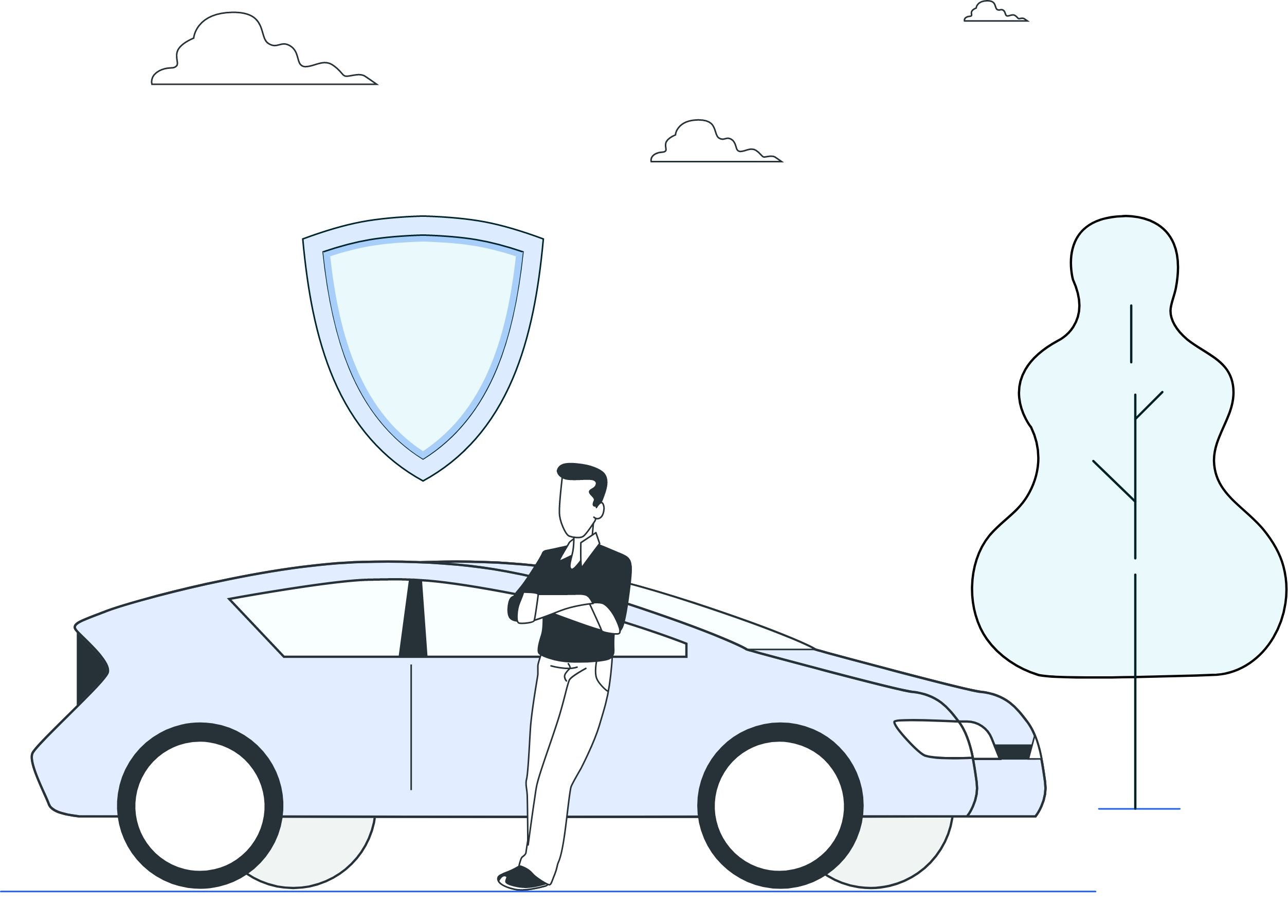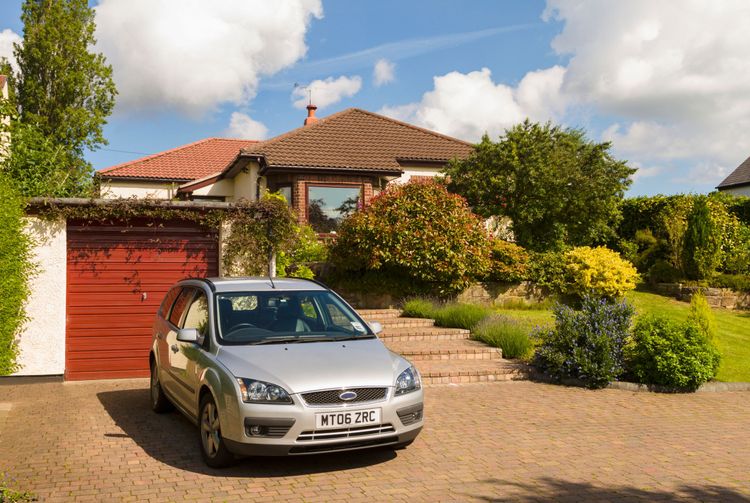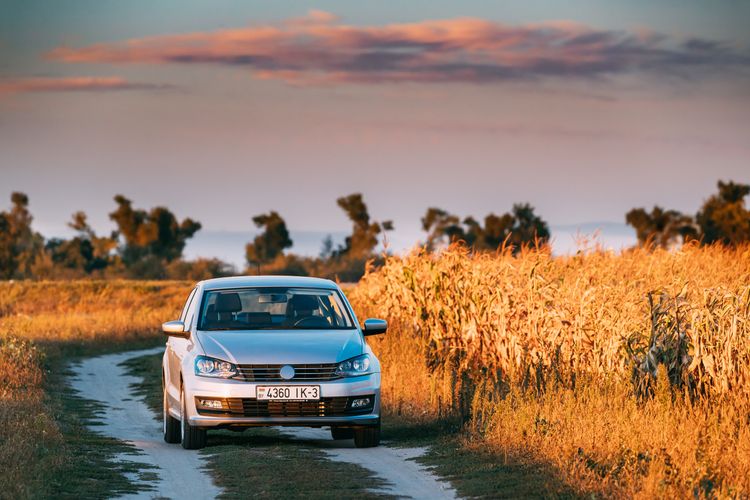Private Car Insurance VS Commercial Car Insurance
Getting vehicle registration and car insurance for a private or commercial four-wheeler is essential. If you plan to use your private vehicle for commercial purposes, it is advisable not to do so until you inform the RTO and get approval.
You must do private to commercial vehicle registration and get commercial four-wheeler insurance for a commercial vehicle, even if you use your existing private vehicle instead of buying a new one.
If you have questions like, what is the difference between private and commercial insurance, can I change private car insurance to commercial, or what is the cost to convert a private car to commercial, read further to know the answers.
Share this article
Compare & Buy the Best Car Insurance Online in Minutes!
Believe it or Not! Save upto* 75% on TATA AIG Car Insurance

List of Content
- What is Private Vehicle Insurance?
- What is Commercial Vehicle Insurance?
- Difference Between Private Insurance and Commercial Insurance
- Can I Convert Private to Commercial Car Insurance?
- Why is Commercial Vehicle Insurance Important?
- Features of Commercial Vehicle Insurance
- Factors to Consider While Buying Commercial Insurance
- Factors That Determine Commercial Vehicle Insurance Cost
- Conclusion
What is Private Vehicle Insurance?
Let us begin with understanding what private car insurance is. As the name suggests, a private car insurance policy is designed to cover a vehicle used as a private vehicle. So, a private four-wheeler insurance policy cannot be used for a four-wheeler used for commercial purposes, like transporting goods from one place to another.
You can choose between a third-party car and a comprehensive car insurance policy. While the former protects you financially against the damages caused to a third party, the latter provides coverage against damages to a third party as well as to your vehicle and yourself.
What is Commercial Vehicle Insurance?
A commercial vehicle insurance policy covers vehicles used for commercial activities. These commercial vehicles include trucks, buses, taxis, etc. Commercial vehicle insurance premiums are usually higher than private vehicle insurance premiums. It is because commercial vehicles are more exposed to accidents and damages than private vehicles.
In addition to the coverage available for third-party and own damages, a commercial vehicle insurance plan also provides financial protection to paid drivers and employees against death or accidental disability.
Difference Between Private Insurance and Commercial Insurance
Before understanding if you can use commercial insurance on a personal vehicle, you must first know the difference between the two types. The following table will help you with it:
| Category | Private Insurance | Commercial Insurance |
|---|---|---|
| Exposure to risk | Lower | Higher |
| Legality | Mandatory to have at least third-party insurance | Mandatory to have at least third-party insurance, coverage for paid drivers, and personal accident cover for vehicle passengers under the insurance plan |
| Personal Accident Cover (PAC) | Coverage to owner-driver in the event of a fatal accident, disability, or death | Coverage to passengers and drivers hired to drive the vehicle. |
| Premium | Lower due to lower risk | Higher due to higher risk |
Can I Convert Private to Commercial Car Insurance?
It may happen that you buy a car for personal use but end up renting it out as a taxi or using it for business purposes. The car registration and insurance type depend on the purpose for which the car is being used.
First, you must get the private registration number of your car converted to a commercial one. You can start this process digitally but may have to visit the RTO to complete the formalities.
Once the registration process is complete, you can move to convert private insurance to commercial. Note that you cannot change your existing private car insurance policy to a commercial one. Instead, you will have to buy a new commercial insurance policy.
Moreover, until you get a new commercial car insurance plan, it is not advisable to use the vehicle except for the registration process.
Why is Commercial Vehicle Insurance Important?
Commercial vehicle insurance protects your business and you against damages to the vehicle and provides liability coverage if the vehicle meets with an accident and causes injuries to a third party, vehicle driver, or its passengers. The policy also protects your vehicle against theft, natural disasters, fire, riots, etc. Such situations will result in a huge financial stress on your business.
Features of Commercial Vehicle Insurance
Both private and public carriers, including vehicles used for the transportation of goods, are covered under a commercial vehicle policy.
The policy also offers you financial protection if an accident or injury occurs.
You can choose between a third-party or comprehensive commercial insurance plan. The comprehensive policy offers wider coverage than a third-party policy, which only covers damages caused to a third party.
Factors to Consider While Buying Commercial Insurance
- Adequate coverage: Since commercial vehicles are more prone to accidents and mishaps, it is essential to get a commercial vehicle insurance plan with sufficient coverage. The coverage should be enough to protect your business from the financial strain of an accident, theft, etc.
- Add-ons: Several add-ons are available with a commercial insurance policy. You can choose add-on coverage options, like loss of income, EMI protector, depreciation reimbursement, repair of glass, fiber, rubber, and plastic parts, etc.
- Insured Declared Value: The Insured Declared Value (IDV) of your vehicle is of crucial importance when you buy commercial vehicle insurance. It is because the IDV decides the coverage amount for your vehicle. The compensation you will receive for theft or total damage will be equal to the vehicle’s IDV.
- Network garages: Insurance providers have tie-ups with garages. These network garages do cashless repairs for your insured vehicle. You need not shell out any money from your pocket to get the repair done, and the insurance company pays the network garage directly. It takes off the financial burden from you. Therefore, always check the list of network garages in your area from the insurer of your choice.
Factors That Determine Commercial Vehicle Insurance Cost
The commercial vehicle’s Insured Declared Value.
The vehicle’s brand and model.
The vehicle’s age.
The vehicle’s registration zone.
The vehicle’s fuel type.
Conclusion
Commercial vehicles that carry goods and passengers must essentially have car insurance. To use a private vehicle for commercial purposes, you need to get the private registration converted to a commercial registration from the RTO.
However, you cannot change a private motor insurance policy into a commercial one. To get a new commercial insurance policy, compare car insurance from Tata AIG and choose the right policy from our third-party and comprehensive commercial insurance plans.
Compare & Buy the Best Car Insurance Online in Minutes!
Believe it or Not! Save upto* 75% on TATA AIG Car Insurance
People also search for
Key Insurance term
Share this article
Latest from our blogs

Zero Depreciation Car Insurance Cover
zero depreciation / depreciation reimbursement cover reimbur...
Read More
What is Insured declared value (IDV)?
The term ‘IDV’ refers to the maximum claim your insurer will...
Read More
How is your car insurance premium calculated?
Well it’s about time that changed, don’t you think? Read on ...
Read More